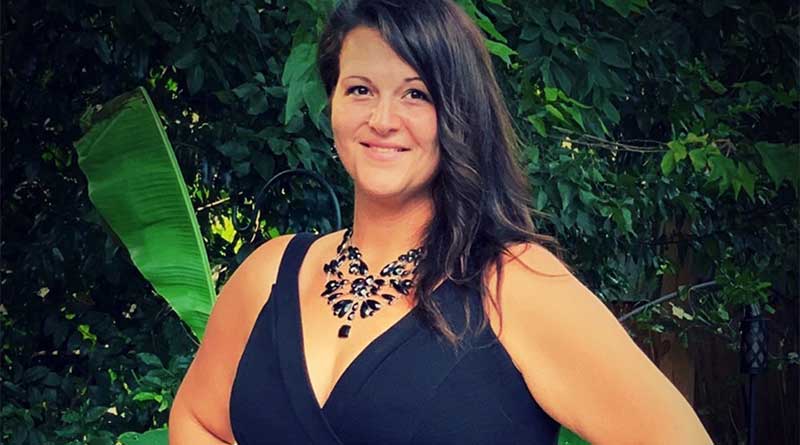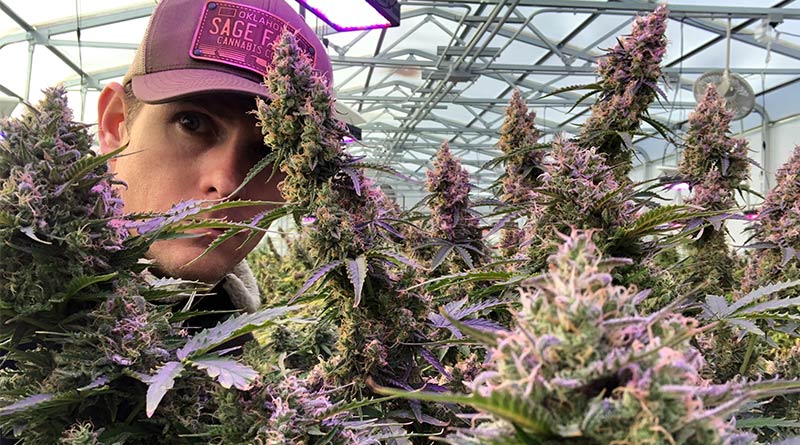by Kayla Johnson
The times are certainly changing in Oklahoma. The new opportunities brought by a booming cannabis industry have undoubtedly changed thousands of lives, both for patients and for industry members. For some, those changes began a few years ago, when the movement to get medical cannabis legalized here was in its early stages, and many have gone from activist to industry leader, all while promoting patient rights and education. Some have always been passionate about cannabis, while others left career fields that were on the complete opposite end of the spectrum to pursue what they believed to be right, like Shelley Free did.
Born and raised in rural Ottawa County, Free has lived in the Tulsa area for about a decade now, and says that even though she has always been anti-criminalization, she never stepped up to the plate and actually got involved until 2017. “I was actually a police officer, and as I got further into my career, I began to realize how much discretion many police officers had, when it came to enforcing cannabis crimes, and I realized when I was told that I didn’t ‘have’ to make an arrest, that I never would. After that experience, I knew that I needed to help ensure patients didn’t suffer at the hands of discretionary, and often discriminatory, enforcement tactics. From there, things just unfolded before me that gave me no choice but to jump full force into this movement.”
And jump she did: Free worked with several cannabis industry professionals to help establish standards and expectations for the medical program here in the state, and openly worked as a volunteer and activist during the push to get S.Q. 788 on the ballot, and then passed successfully. Once the bill was voted on, Free stepped into the role of Executive Director of Oklahomans for Health, the organization that drove the bill forward, and has served there since departing from the police force in 2018, after five years in law enforcement, and one as a correctional officer.
Perhaps due in part to her experience with the ‘good ole boys club’ that law enforcement often is, Free sees any setbacks due to her gender as more of a challenge than a dead-end. “There are times where I know if my words came out of the mind of a man, that they’d be taken more seriously, or others would be moved to action, but I’m not bitter, that only empowers me to build my own credentialed platform.” While those moments have motivated her, Free also notes that they’re few. “I believe the Oklahoma cannabis industry is diverse and open to all who wish to join us, and in all honesty, I rarely see any malicious “ism’s” (sexism, racism, etc) occuring among women and other minorities. As a community, we have done well at maintaining a no tolerance policy on hate and oppression.”
While the community has made great efforts to remain a welcoming, inclusive industry for all, Free points out something that she does see that many in the industry lack thus far: business acumen. “I love to stay positive, and I understand with any new industry, there will be a learning curve for professional codes and conduct, but I often see, within our specific industry, a lot of very unprofessional, tactless, and even outright negligent behavior on behalf of individuals who claim to set standards and be well informed on regulations, yet blatantly violate laws on live videos, or antagonize calls to action based on misunderstandings.” Despite the issues that exist, Free encourages anyone involved in the industry to take a simple step. “I honestly think anyone interested in operating in the industry should read the laws. I see daily questions from owners who already have their license approval, but have no business model or plan in place, and no real knowledge of the regulatory oversights of their particular city or county. A lot of the stress and confusion could be avoided if more people simply read the laws and regulations that govern our program.”
 Even with the setbacks the industry has faced thus far in terms of lack of education and push-back from cannabis opponents, Free commends not only the industry itself, but the community of patients that’s formed in Oklahoma. “The community we’ve created is my absolute favorite thing. I enjoy going to seminars, fundraisers, galas, and patient events to hear how this plant and this program have changed lives. Seeing my fellow men and women empowered to talk about their mental health, their child custody issues, their time incarcerated, or whatever else has affected them, and to see them not be ashamed, but proud of themselves for making it through it all, that’s what it’s all about.”
Even with the setbacks the industry has faced thus far in terms of lack of education and push-back from cannabis opponents, Free commends not only the industry itself, but the community of patients that’s formed in Oklahoma. “The community we’ve created is my absolute favorite thing. I enjoy going to seminars, fundraisers, galas, and patient events to hear how this plant and this program have changed lives. Seeing my fellow men and women empowered to talk about their mental health, their child custody issues, their time incarcerated, or whatever else has affected them, and to see them not be ashamed, but proud of themselves for making it through it all, that’s what it’s all about.”
Both in the patient community and the industry itself, women especially are making themselves known as a canna-force to be reckoned with, and for Free, the victory isn’t only that these women owned and operated businesses are succeeding, but that the women themselves are thriving.“Women are dominating in Oklahoma, and my own circle of gal pals is more empowered and fierce than we’ve ever been, thanks to our roles in this movement. It’s so important that we continue to empower each other, not compete with each other. Women can help propel the industry even further simply by supporting other women.” That mindset of cheering other women on extends into Free’s advice for women (or anyone, really) who’s looking to get involved with the cannabis industry:” DO IT. Do it yesterday, actually! I have met so many women over the past few years who come to be with a question and their dream. I’m always going to push the pedal to the floor on their dreams, because life is truly too short to live life anything less than passionately. Ladies – if not now, then when? If not you, then who?” Free also pointed out the importance of getting involved with the women’s organizations in the state. “We are very fortunate to have some incredible women’s organizations here already, such as Women of Weed, organized by Ruthie Dedmon, Women + Weed organized by Jeana Acosta, and the Oklahoma Women’s Cannabis Association, organized by Courtney Smith.”
In spite of those few, occasional moments where she’s felt less-acknowledged than her male counterparts, Free’s outlook on women in the cannabis industry is undeniably positive. “Cannabis is not the ‘status quo’ industry of our forefathers. We have an opportunity, as women, to come in on the ground floor, knowing just as much as our male counterparts, and actually be heard. It’s important that women succeed because it affirms what we have all known: that if we are given the chance, we are almost always up to the challenge.” Free acknowledges that in other industries, women simply haven’t been allowed in, either at the ground floor or beyond the glass ceiling, but also points out the unprecedented opportunity currently available. “There has never been a time or place where women are elevated and empowered to act and engaged on the scale that we’re seeing at this time in legalization’s history. This industry promotes health, wealth and vitality for those who operate with integrity, and I would love to see that class of women finally take their place in the light.”




